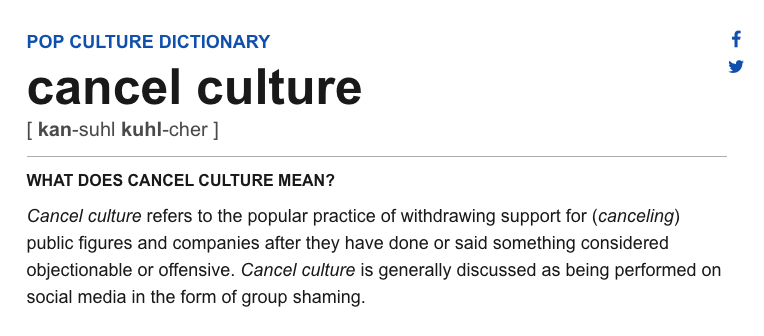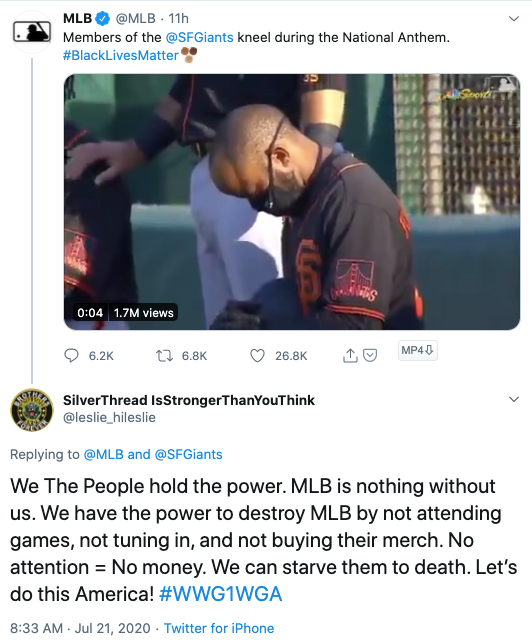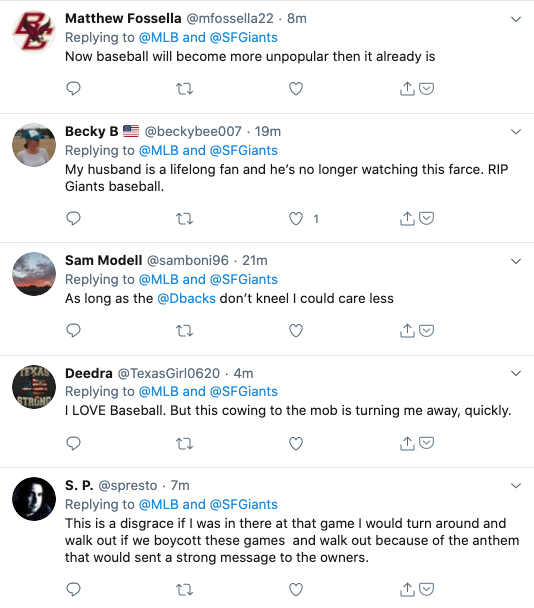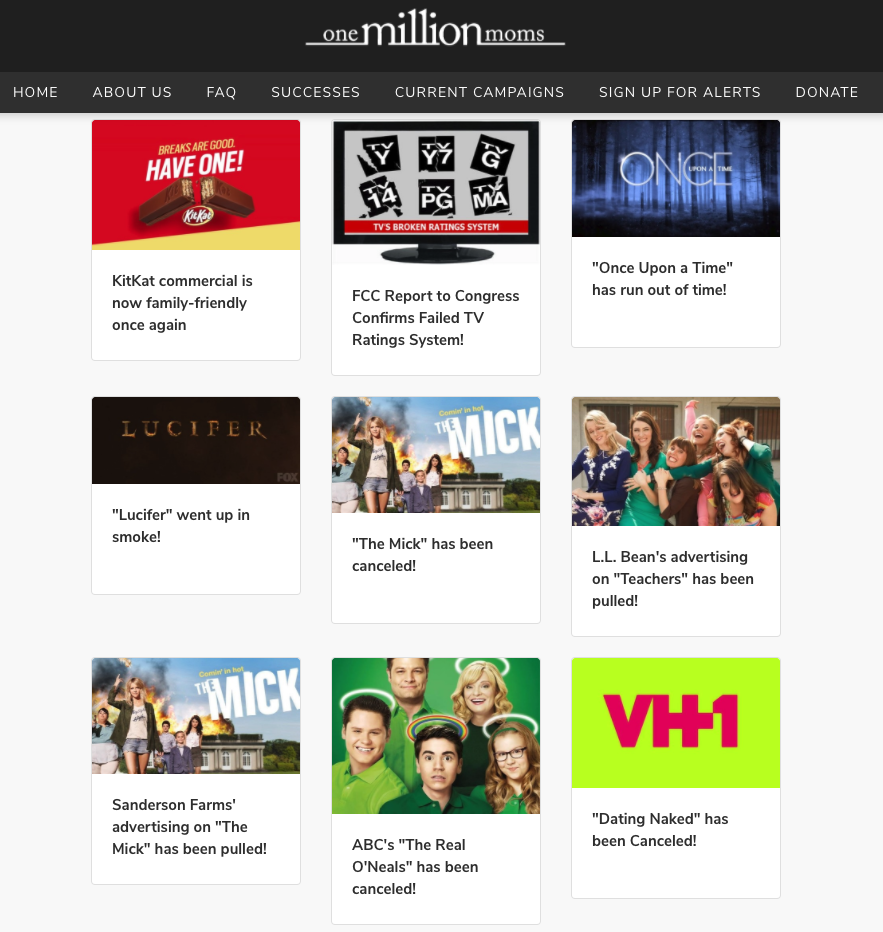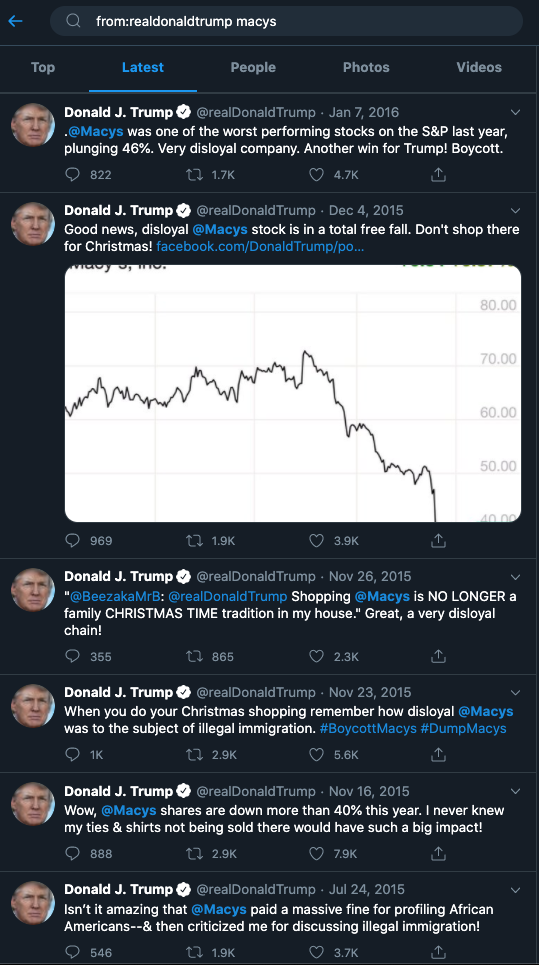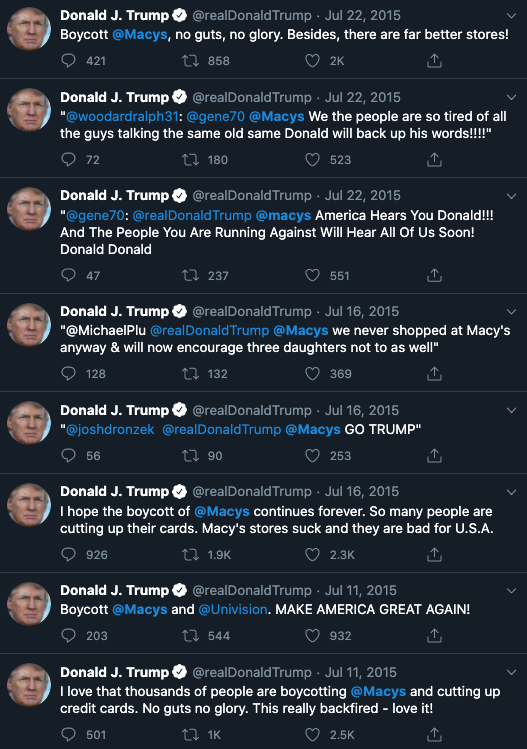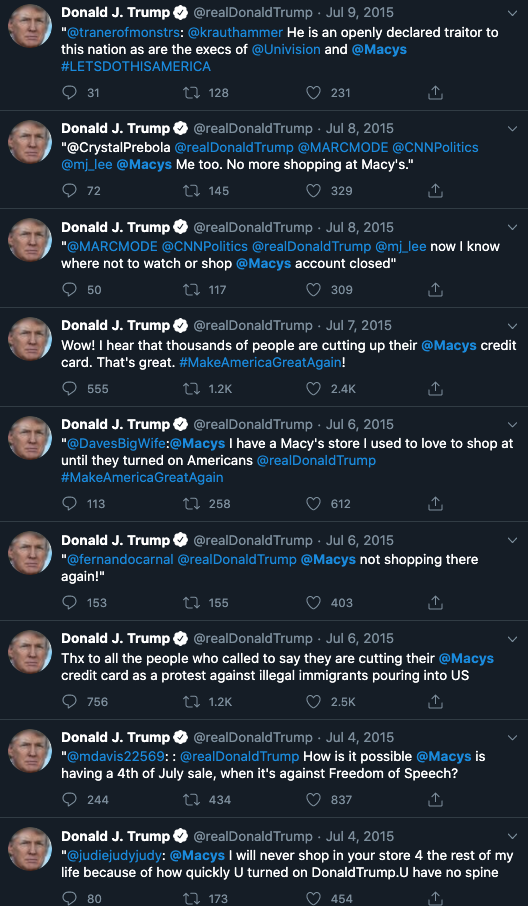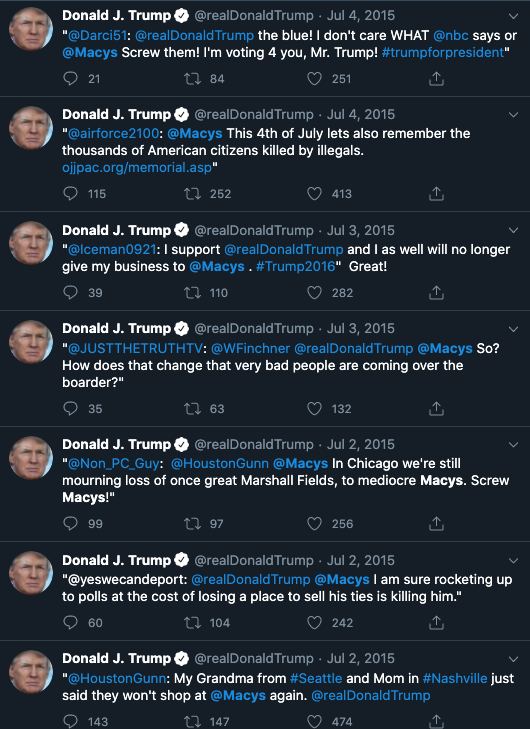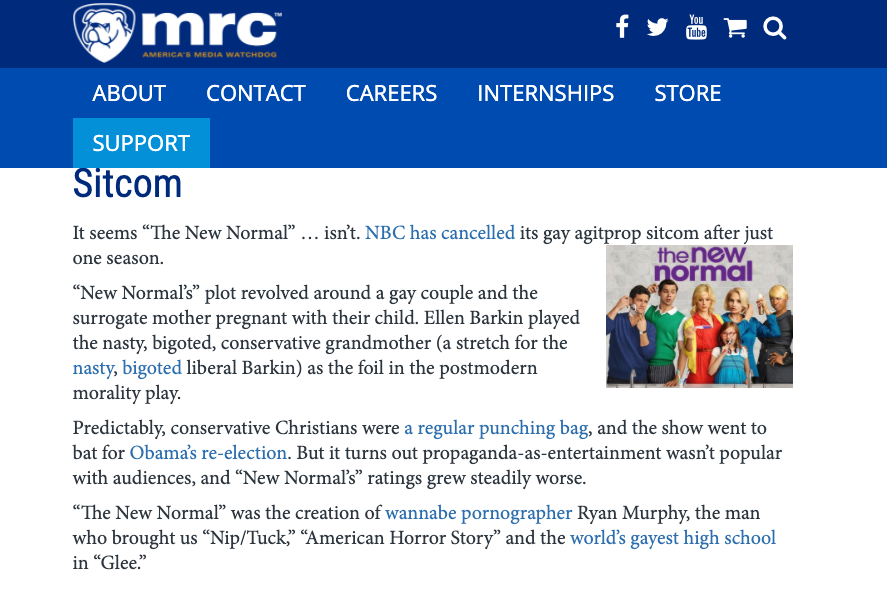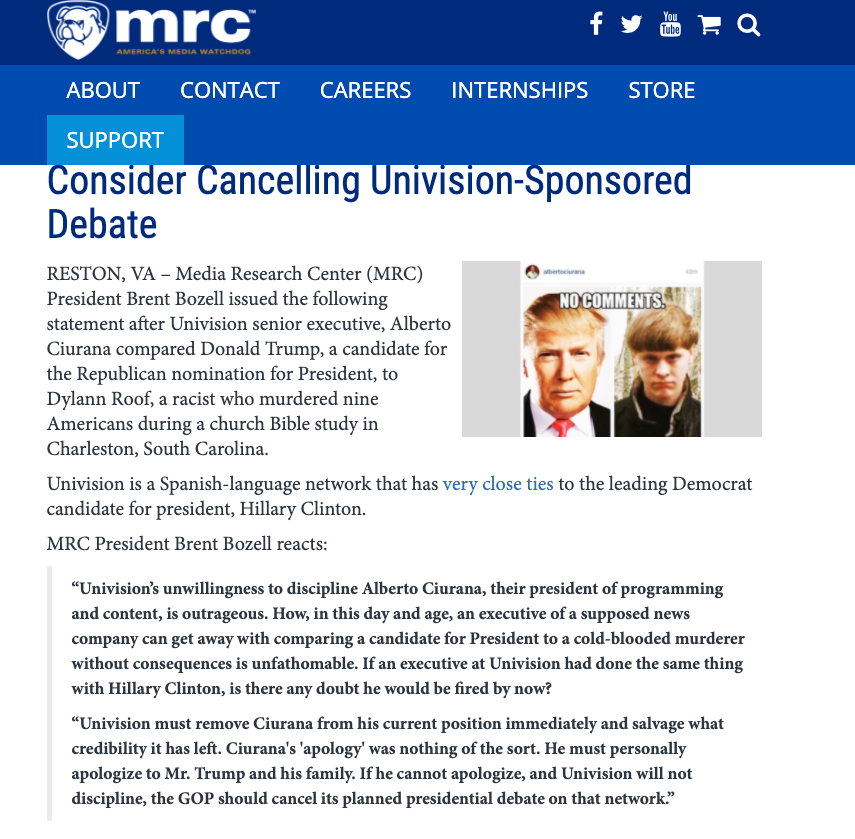I really want the people obsessed with railing against "cancel culture" to let me know when, if ever, it's okay to criticize something. Because what it seems like you're saying is that people should just shut up and never criticize anything — only heap praise on things.
Because people will be like, "Drew Brees was canceled!" And... what? In what world does that make even the tiniest bit of sense? He said something people disagreed with, people criticized him for it, and he decided to clarify what he meant. That's... not "cancel culture."
Who said criticism has to be "polite?" Sounds like you want a safe space free from harsh criticism. I thought you guys were all pro "free speech?" https://twitter.com/all_qd/status/1286042477405724673
And crap, just realized that's a ridiculous Q account. Of course.
And this (the link that person just tweeted at me) is such a broad definition that it encompasses pretty much any and all criticism. https://www.dictionary.com/e/pop-culture/cancel-culture/
Is this "cancel culture?" https://www.nytimes.com/2019/04/28/opinion/cartoon-nytimes.html
1. The cartoon he referred to was absolutely anti-Semitic, yes.
2. In response to backlash, the Times stopped publishing cartoons in its international edition.
Seems cancel culture-y!
1. The cartoon he referred to was absolutely anti-Semitic, yes.
2. In response to backlash, the Times stopped publishing cartoons in its international edition.
Seems cancel culture-y!
Is this "cancel culture?" https://www.foxnews.com/food-drink/trump-fans-call-for-kelloggs-boycott-after-brand-pulls-breitbart-ads
Is this "cancel culture?" It's literally a group dedicated to getting TV shows canceled that it doesn't like https://onemillionmoms.com/
Is this "cancel culture?" (Yes, all of these tweets were sent after he started running for president... I know...) https://twitter.com/search?q=from%3Arealdonaldtrump%20macys&src=typed_query&f=live
Is this "cancel culture?" https://markets.businessinsider.com/news/stocks/nike-betsy-ross-sneaker-conservative-boycott-after-withdrawal-2019-7-1028327244#
When Republicans rescinded their endorsements of Trump after the Access Hollywood tape (only to re-endorse him later), was that "cancel culture?" https://www.usatoday.com/story/news/politics/onpolitics/2016/10/08/donald-trump-debate-mike-crapo-mike-lee-barbara-comstock/91784714/
Deciding not to support someone or something (and saying so in public) because of something they said or did is "cancel culture?"
Because presumably you'd make the decision to SUPPORT someone for something they say or do, yes? But the opposite is "cancel culture?"
If a musician puts out a great album/song, you're likely to support them on that basis, yeah?
If their next album is really terrible, are you allowed to tell people that it's bad? Like... "Man, this record is just this person reading 'Mein Kampf,' wtf??" or something?
If their next album is really terrible, are you allowed to tell people that it's bad? Like... "Man, this record is just this person reading 'Mein Kampf,' wtf??" or something?
Or are you obligated to continue to support that artist, per rules of the anti-"cancel culture" brigade?
Now, some people might say, "No, but you can just quietly choose not to support that artist." Well, that certainly sounds like you're trying to cancel me for my criticism.
Now, some people might say, "No, but you can just quietly choose not to support that artist." Well, that certainly sounds like you're trying to cancel me for my criticism.
Where does someone's speech start and another's end? And if it's "cancel culture" to not buy a certain kind of baked beans or whatever because of something a CEO says, "free speech" means they're entitled to your money? Seems pretty... not free!
Every single example I've listed here is just as legitimate an example of "cancel culture" as anything I've seen people calling "cancel culture." The whole ordeal with people threatening to boycott sports if a team takes a knee is especially an interesting one.
Because if it's *not* cancel culture to angrily tweet, "I'm not gonna watch this year, you just lost a fan!" because a player engages in a silent protest, but it *is* cancel culture to criticize someone for publicly taking a stand *against* the people taking a knee...
then you're applying different standards depending on the point of view of the person complaining, proving that it's not about "free speech" or anything like that, but enforcing your own point of view (or a point of view you're comfortable enough with).
If people boo the president when he goes to the World Series, are they guilty of participating in "cancel culture?" Or are the people who criticize *them* *for* booing the president the ones participating in "cancel culture?"
Who's speech counts?
Who's speech counts?
The point of this long and convoluted thread is that the whole "cancel culture is bad" take doesn't hold up against the lightest of scrutiny. It's swiss cheese logic. Oh no, by criticizing people who criticize cancel culture, am I trying to cancel them?
Instead of leaning so heavily on rhetorical empty calories like "political correctness," "identity politics," and "cancel culture" to make arguments, just say specifically what you mean. Your argument will be stronger for it, trust me.
"I don't think someone should be fired for something they tweeted 5 years ago." Like that, that's a clearly outlined position that makes clear what you're talking about.
"I don't think someone should be uninvited from a college speaking engagement once it's been offered to them." That's another that makes clear what you're actually arguing for.
But if you just sit around spitting out "Methinks the discourse groupthink is not heterodox enough and needs more intellectual diversity," you're not saying anything. You're just jerking off to your own (view of your own) intellect.
The people who do these things want you to sit down and shut up. It's as simple as that. Their idea of free speech is that they say whatever they want, and anyone who disagrees just keeps it to themselves or responds in a way they deem appropriate.
It's the most blatantly anti-speech point of view (hilariously published under the guise of being pro-speech) I've seen in a long time.
If your arguments are about how "people shouldn't get fired for X," then the place to direct that is to people who make decisions about hiring/firing people. OR, even better, to lawmakers, who can actually implement employment protections.
But these overwrought lectures to the general public are just circlejerks for the people who make them and their friends. They're telling *you* how to speak. They're telling *you* what you can or can't say. They're telling *you* what opinions you're allowed to express.

 Read on Twitter
Read on Twitter